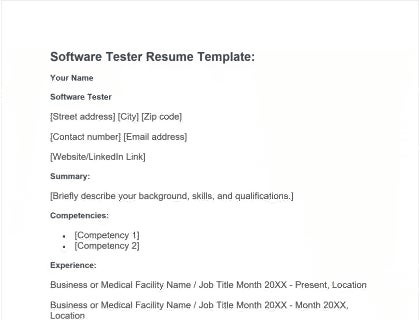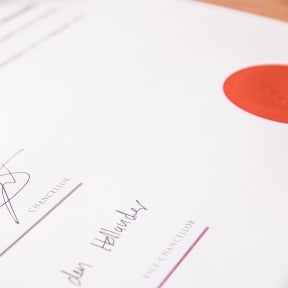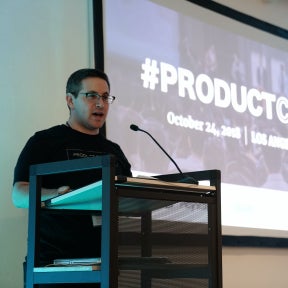
Software Tester Resume — Free Template Download
Download this software tester resume template in Microsoft Word format.
Download NowSoftware Tester Resume Template:
Your Name
Software Tester
[Street address]
[City]
[Zip code]
[Contact number]
[Email address]
[LinkedIn profile / Website link]
Summary:
[Briefly describe your background, skills, and qualifications.]
Technical Skills.
[Skill 1]
[Skill 2]
Experience:
Business Name / Job Title Month 20XX - Present, Location
Business Name / Job Title Month 20XX - Month 20XX, Location
Business Name / Job Title Month 20XX - Month 20XX, Location
Education:
School Name / Qualification Month 20XX - Month 20XX, Location
School Name / Qualification Month 20XX - Month 20XX, Location
Certificates:
[Certificate 1]
[Certificate 2]
Achievements:
[Notable career achievement 1]
[Notable career achievement 2]
Awards and Promotions:
[Service award 1]
[Job promotion 1]
How to Write a Software Tester Resume:

A complete guide to writing a software tester resume with a free template.
Start with a summary.
Make your summary stand out.

You'd need your summary to create a great first impression, intriguing employers enough to continue reading your resume. Focus on your key strengths, technical abilities, years of experience, and notable milestones.
Keep your summary short and to the point.

Try to keep your summary under four sentences and only include the most pertinent information. Add a sentence about how your specific skill set and experience will benefit the employer's organization.
Showcase your technical skills.
Start with your most important skills.

Showcase your software tester expertise at the top of the page to catch the attention of the screener. Screeners will be most interested in your critical thinking and technical skills, so make a bulleted list that includes skills such as SQA testing, regression and negative testing, UI and compatibility testing, data interface and migration testing, testing automation, defect/bug tracking, and more.
Be sure to mention all relevant skills that could set you apart from other candidates.
Match your skill set with the job posting.

You'll want to directly match your skills with the job requirements. List all relevant skills and competencies you have acquired over time. Do not list skills that will not be needed for the position.
Be truthful.

When listing your skills, remain honest and realistic about your level of expertise as the later stages of the hiring process may require practical assessments.
List your professional experience.
Add your experience in reverse chronological order.

The work experience section is an imperative part of your resume as employers will want to read about the software testing you've performed in previous roles. List your professional experience as a software tester, as well as any other relevant job experience that required testing-related skills and knowledge.
Add the places you have worked.

You'll want to ensure that screeners are able to gauge the type of tasks and tests you've completed in previous positions. This will help employers envisage you in the role and determine the type of software testing projects you're knowledgeable in. Most employers look for software testers with a minimum of three years' experience.
Outline your education information.
List your qualifications.

In reverse chronological order, add your qualifications. Each qualification entry should mention an institution name, the dates of attendance, and a location. Typically, software testers have a Bachelor's degree in computer science or a related field.
Mention qualifications in progress.

If you're studying towards a qualification, mention it at the start of this section. Omit the initial date and instead include the words "In Progress."
Add your certifications.
List any relevant certificates.

While your resume already reveals a lot about you and your abilities, it's advisable to list any relevant training or certificate courses you've completed. Screeners and potential employers will see these as an added benefit, as it showcases your preparedness and willingness to continuously educate yourself.
Start with your most relevant certificate.

If you obtained more than one certificate, consider which one employers would be most interested in and mention it first.
Common certificates with an emphasis on software testing include:
- Foundation Level Certification (CTFL).
- Advanced Level Agile Technical Tester (CTAL-ATT).
- Advanced Level Test Analyst Software Testing Certification.
Add certification details.

Certificates awarded by accredited institutions add value to your application. You'll want to include mention of the institutions and the dates you obtained your certificates.
Highlight your achievements.
Add notable career highlights.

Your career milestones are a great addition to your resume because they act as solid references, proving to employers that you're more than capable of exceeding their expectations. You'll immediately want to capture an employer's attention, so start this section with the most notable software testing projects you've completed.
Showcase major completed projects.

You'll want to provide sufficient details of your accomplishments. These can include, for example, collaborating with a team of software architects to successfully test, debug, and optimize all the developmental stages of a specific full system lifecycle, and more.
Be sure to include metrics to emphasize the impact your achievements had on the business, for example — increasing the average QA testing turn-around time by more than 30%, or preventing a cumulative loss of more than $250,000.00 by identifying a bug in an automated price quoting system. The more specific, the better.
List any professional awards and job promotions.
Add key career moments at the end of your resume.

These typically include professional achievements such as awards of merit or job promotions that may be of particular interest to employers, for example —formal recognition from previous employers or being promoted to a senior software tester within two years.
Provide the details of your professional achievements.

Use bullet points to briefly describe each accomplishment and list them in reverse chronological order. Remember that each entry should also identify the institution/employer. Don't neglect to provide a date.
Similar Resumes:
Software Project Manager Resume


